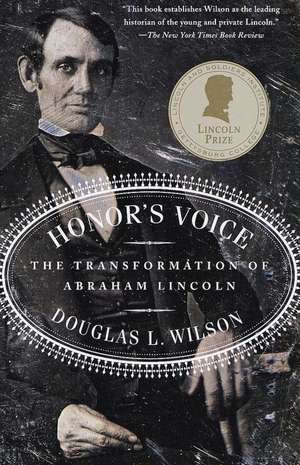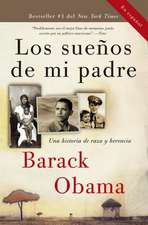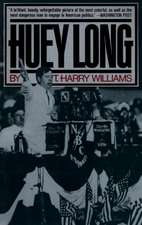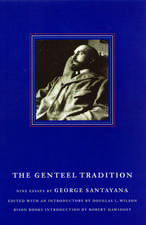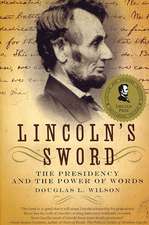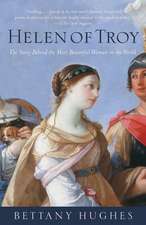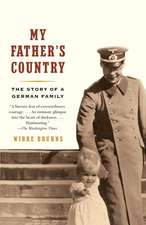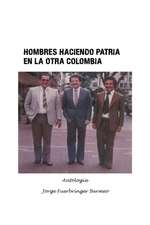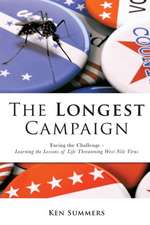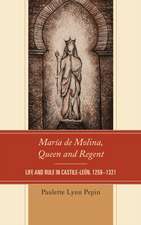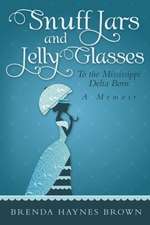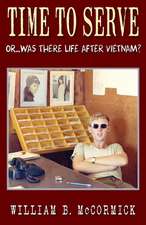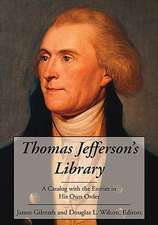Honor's Voice: The Transformation of Abraham Lincoln
Autor Douglas L. Wilsonen Limba Engleză Paperback – 30 apr 1999
Focusing on the crucial years between 1831 and 1842, Wilson's skillful analysis of the testimonies and writings of Lincoln's contemporaries reveals the individual behind the legends. We see Lincoln as a boy: not the dutiful son studying by firelight, but the stubborn rebel determined to make something of himself. We see him as a young man: not the ascendant statesman, but the canny local politician who was renowned for his talents in wrestling and storytelling (as well as for his extensive store of off-color jokes). Wilson also reconstructs Lincoln's frequently anguished personal life: his religious skepticism, recurrent bouts of depression, and difficult relationships with women - from Ann Rutledge to Mary Owens to Mary Todd.
Meticulously researched and well written, this is a fascinating book that makes us reexamine our ideas about one of the icons of American history.
From the Hardcover edition.
Preț: 136.48 lei
Nou
Puncte Express: 205
Preț estimativ în valută:
26.12€ • 27.32$ • 21.69£
26.12€ • 27.32$ • 21.69£
Carte disponibilă
Livrare economică 12-26 martie
Preluare comenzi: 021 569.72.76
Specificații
ISBN-13: 9780375703966
ISBN-10: 0375703969
Pagini: 400
Ilustrații: 2 MAPS
Dimensiuni: 130 x 208 x 22 mm
Greutate: 0.33 kg
Ediția:Vintage Books.
Editura: Vintage Books USA
ISBN-10: 0375703969
Pagini: 400
Ilustrații: 2 MAPS
Dimensiuni: 130 x 208 x 22 mm
Greutate: 0.33 kg
Ediția:Vintage Books.
Editura: Vintage Books USA
Notă biografică
Douglas L. Wilson is Saunders Director of the International Center for Jefferson Studies at Monticello in Charlottesville, Virginia.
From the Hardcover edition.
From the Hardcover edition.
Extras
From Chapter 2
Abraham Lincoln's childhood education, conducted almost entirely by himself, with only a modicum of schooling, is one of the most familiar stories in American history. According to the legend, the young backwoods farm boy educated himself by a determined program of nightly reading after the day's work was done, systematically consuming all the books in the sparsely inhabited neighborhood where he grew up. His determination and youthful quest for enlightenment, the distinctive inner qualities that set him apart, have long been symbolized by the indelible image of the boy reading alone by firelight.
Legends, by their nature, are not so much factual accounts as symbolic embodiments or expressions of what the facts represent. America's attraction to the image of the boy reading alone by firelight is thus the tribute paid to the humble origins and noble attributes of a great national hero, but the Lincoln of history, insofar as can be determined from the testimony of those who knew him, proves in many respects worthy of the legend. Most of his Indiana friends and neighbors who were questioned by William H. Herndon, and William M. Thayer before him, remembered the young Lincoln as an ardent reader. His cousin John Hanks, who lived for a time with the Lincolns, called him "a Constant and voracious reader." His near neighbor and close friend David Turnham told Herndon, "We had but few books at that time and our opportunities were poor," but "what [Lincoln] read he read well and thoroughly -- Never forgetting what he read." These same witnesses confirmed Lincoln's own testimony that he attended the primitive schools of the period only briefly and intermittently, and they further suggested that he eventually outstripped his teachers. "The Schools we went to taught Spelling -- reading -- writing and Ciphering to single rule of 3 -- no further," reported one of his schoolmates. "Lincoln got ahead of his masters -- Could do him no further good: he went to school no more."
His stepmother, who came into his life when he was ten years old and to whom he remained devoted, described for Herndon the young man's unusual commitment to his studies: "Abe read all the books he could lay his hands on -- and when he came across a passage that Struck him he would write it down on boards if he had no paper & keep it there till he did get paper -- then he would re-write it -- look at it -- repeat it -- He had a copy book -- a kind of scrap book in which he put down all things and this preserved them." His stepmother's evident pride in Lincoln's educational efforts contrasted with his father's attitude, which was apparently less than approving. Herndon may have asked about a scene in William M. Thayer's The Pioneer Boy and How He Became President (1863), which depicted the young Lincoln resisting his father's command that he quit reading and go back to work. Sarah Bush Lincoln spoke protectively of her husband's behavior, which she tried to put in a positive light, telling Herndon: "As a usual thing Mr Lincoln never made Abe quit reading to do anything if he could avoid it. He would do it himself first. Mr. Lincoln could read a little & could scarcely write his name: hence he wanted, as he himself felt the uses & necessities of Education his boy Abraham to learn & he Encouraged him to do it in all ways he could." But one senses a defensiveness in her description, particularly when she says that her husband never made the boy quit reading "if he could avoid it."
Lincoln's cousin Dennis Hanks, who lived with them, spotlighted the tension between Lincoln and his father in characterizing the boy's reading habits: "He was a Constant and I m[a]y Say Stubborn reader, his father having Sometimes to slash him for neglecting his work by reading." That this was a continuing problem rather than an isolated incident is further suggested by a saying of Thomas Lincoln that Dennis remembered in this connection. "Mr Lincoln -- Abs father -- often said [I] had to pull the old sow up to the trough -- when speaking of Abes reading & how he got to it, then and now he had to pull her away." In other words, he had to force his son to take up reading, but once the boy became a reader, only force could get him stopped.
Sarah Bush Lincoln's testimony laid great stress on her stepson's devotion to reading and study, but she also told things that are at odds with the picture presented by the time-honored legend. "He read diligently -- studied in the day time -- didn't after night much -- went to bed Early -- got up Early and then read -- Eat his breakfast -- go to work in the field with the men." If he didn't read at night, what about the boy reading by firelight? Implicit in this image of nighttime reading is an understanding that daytime had to be given to farm work or other chores, but his stepmother's testimony that he rarely read at night suggests otherwise.
Reading during the day raises the specter of the boy shirking his chores and stealing time from work for reading, something that is confirmed by Thayer's anecdote and by Dennis Hanks's recollection of Lincoln's father "slashing" him for neglecting his work by reading. There was difficulty between Lincoln and his father that, while probably quite important in his development, is hard to get at, for there are many clues but few concrete details.
Thomas Lincoln is reported to have told William G. Greene a few years after Lincoln left home, "I suppose that Abe is still fooling hisself with eddication. I tried to stop it, but he has got that fool idea in his head, and it can't be got out." If Thomas Lincoln was as antagonistic to education as this suggests, we can be sure that the difficulty between them was serious. The symbolic boy reading by firelight has done his part and is at peace with his father; the actual boy was probably something of a rebel.
Not part of the popular image, for obvious reasons, is that Lincoln's studiousness, which he apparently indulged at the expense of his duties, was roundly judged by his contemporaries as an indication of his laziness. A neighbor and former employer, John Romine, told Herndon: "Abe was awful lazy: he worked for me -- was always reading & thinking -- used to get mad at him." Dennis Hanks admitted, "Lincoln was lazy -- a very lazy man -- He was always reading -- scribbling -- writing -- Ciphering -- writing Poetry &c. &c." That Lincoln did not like physical labor was apparently never disputed, for even his adoring stepmother admitted it. In this sense, judged by the standards of his contemporaries, he clearly was lazy, where laziness was regarded as something between a character fault and a cardinal sin.
But Sarah Bush Lincoln saw in the situation, at least retrospectively, something that the neighbors and even Dennis Hanks did not: that the young Lincoln, while lazy about farm work, had been industrious in another direction. She told Herndon that "he didn't like physical labor -- was diligent for Knowledge -- wished to Know & if pains & Labor would get it he was sure to get it." Her daughter, Lincoln's stepsister, gave the situation another positive spin: "Abe was not Energetic Except in one thing -- he was active & persistant in learning -- read Everything he Could." With historical hindsight, we have little trouble rationalizing Lincoln's youthful reading as a form of striving, as it surely was, but we miss an element in the equation if we fail to take into account the construction his father and most others put on his dislike of farm work and his appetite for reading. For them it was avoiding work; for him it was a way of asserting his individuality and his aspirations.
While growing up in Indiana, the young Abraham Lincoln was, by all indications, an inveterate reader or, as Dennis Hanks put it, "a Constant and I m[a]y Say Stubborn reader." The more one looks at the evidence behind the familiar legend, the more meaning Hanks's carefully chosen word "stubborn" seems to have. For Lincoln paid a price for being a habitual reader as a boy in Indiana. Not only was he occasionally "slashed" by his father, but he was judged "lazy" by his friends and neighbors. His persistence in these circumstances was, indeed, an act of youthful stubbornness; it was carried on in defiance of the opinions of family and community. Looking back on these events in the light of what happened subsequently, we can see that Lincoln was a reader in his youthful days in Indiana, in part as a way of escaping farm work, but more important, he was reading because he had decided very early that he didn't want to be a farmer.
From the Hardcover edition.
Abraham Lincoln's childhood education, conducted almost entirely by himself, with only a modicum of schooling, is one of the most familiar stories in American history. According to the legend, the young backwoods farm boy educated himself by a determined program of nightly reading after the day's work was done, systematically consuming all the books in the sparsely inhabited neighborhood where he grew up. His determination and youthful quest for enlightenment, the distinctive inner qualities that set him apart, have long been symbolized by the indelible image of the boy reading alone by firelight.
Legends, by their nature, are not so much factual accounts as symbolic embodiments or expressions of what the facts represent. America's attraction to the image of the boy reading alone by firelight is thus the tribute paid to the humble origins and noble attributes of a great national hero, but the Lincoln of history, insofar as can be determined from the testimony of those who knew him, proves in many respects worthy of the legend. Most of his Indiana friends and neighbors who were questioned by William H. Herndon, and William M. Thayer before him, remembered the young Lincoln as an ardent reader. His cousin John Hanks, who lived for a time with the Lincolns, called him "a Constant and voracious reader." His near neighbor and close friend David Turnham told Herndon, "We had but few books at that time and our opportunities were poor," but "what [Lincoln] read he read well and thoroughly -- Never forgetting what he read." These same witnesses confirmed Lincoln's own testimony that he attended the primitive schools of the period only briefly and intermittently, and they further suggested that he eventually outstripped his teachers. "The Schools we went to taught Spelling -- reading -- writing and Ciphering to single rule of 3 -- no further," reported one of his schoolmates. "Lincoln got ahead of his masters -- Could do him no further good: he went to school no more."
His stepmother, who came into his life when he was ten years old and to whom he remained devoted, described for Herndon the young man's unusual commitment to his studies: "Abe read all the books he could lay his hands on -- and when he came across a passage that Struck him he would write it down on boards if he had no paper & keep it there till he did get paper -- then he would re-write it -- look at it -- repeat it -- He had a copy book -- a kind of scrap book in which he put down all things and this preserved them." His stepmother's evident pride in Lincoln's educational efforts contrasted with his father's attitude, which was apparently less than approving. Herndon may have asked about a scene in William M. Thayer's The Pioneer Boy and How He Became President (1863), which depicted the young Lincoln resisting his father's command that he quit reading and go back to work. Sarah Bush Lincoln spoke protectively of her husband's behavior, which she tried to put in a positive light, telling Herndon: "As a usual thing Mr Lincoln never made Abe quit reading to do anything if he could avoid it. He would do it himself first. Mr. Lincoln could read a little & could scarcely write his name: hence he wanted, as he himself felt the uses & necessities of Education his boy Abraham to learn & he Encouraged him to do it in all ways he could." But one senses a defensiveness in her description, particularly when she says that her husband never made the boy quit reading "if he could avoid it."
Lincoln's cousin Dennis Hanks, who lived with them, spotlighted the tension between Lincoln and his father in characterizing the boy's reading habits: "He was a Constant and I m[a]y Say Stubborn reader, his father having Sometimes to slash him for neglecting his work by reading." That this was a continuing problem rather than an isolated incident is further suggested by a saying of Thomas Lincoln that Dennis remembered in this connection. "Mr Lincoln -- Abs father -- often said [I] had to pull the old sow up to the trough -- when speaking of Abes reading & how he got to it, then and now he had to pull her away." In other words, he had to force his son to take up reading, but once the boy became a reader, only force could get him stopped.
Sarah Bush Lincoln's testimony laid great stress on her stepson's devotion to reading and study, but she also told things that are at odds with the picture presented by the time-honored legend. "He read diligently -- studied in the day time -- didn't after night much -- went to bed Early -- got up Early and then read -- Eat his breakfast -- go to work in the field with the men." If he didn't read at night, what about the boy reading by firelight? Implicit in this image of nighttime reading is an understanding that daytime had to be given to farm work or other chores, but his stepmother's testimony that he rarely read at night suggests otherwise.
Reading during the day raises the specter of the boy shirking his chores and stealing time from work for reading, something that is confirmed by Thayer's anecdote and by Dennis Hanks's recollection of Lincoln's father "slashing" him for neglecting his work by reading. There was difficulty between Lincoln and his father that, while probably quite important in his development, is hard to get at, for there are many clues but few concrete details.
Thomas Lincoln is reported to have told William G. Greene a few years after Lincoln left home, "I suppose that Abe is still fooling hisself with eddication. I tried to stop it, but he has got that fool idea in his head, and it can't be got out." If Thomas Lincoln was as antagonistic to education as this suggests, we can be sure that the difficulty between them was serious. The symbolic boy reading by firelight has done his part and is at peace with his father; the actual boy was probably something of a rebel.
Not part of the popular image, for obvious reasons, is that Lincoln's studiousness, which he apparently indulged at the expense of his duties, was roundly judged by his contemporaries as an indication of his laziness. A neighbor and former employer, John Romine, told Herndon: "Abe was awful lazy: he worked for me -- was always reading & thinking -- used to get mad at him." Dennis Hanks admitted, "Lincoln was lazy -- a very lazy man -- He was always reading -- scribbling -- writing -- Ciphering -- writing Poetry &c. &c." That Lincoln did not like physical labor was apparently never disputed, for even his adoring stepmother admitted it. In this sense, judged by the standards of his contemporaries, he clearly was lazy, where laziness was regarded as something between a character fault and a cardinal sin.
But Sarah Bush Lincoln saw in the situation, at least retrospectively, something that the neighbors and even Dennis Hanks did not: that the young Lincoln, while lazy about farm work, had been industrious in another direction. She told Herndon that "he didn't like physical labor -- was diligent for Knowledge -- wished to Know & if pains & Labor would get it he was sure to get it." Her daughter, Lincoln's stepsister, gave the situation another positive spin: "Abe was not Energetic Except in one thing -- he was active & persistant in learning -- read Everything he Could." With historical hindsight, we have little trouble rationalizing Lincoln's youthful reading as a form of striving, as it surely was, but we miss an element in the equation if we fail to take into account the construction his father and most others put on his dislike of farm work and his appetite for reading. For them it was avoiding work; for him it was a way of asserting his individuality and his aspirations.
While growing up in Indiana, the young Abraham Lincoln was, by all indications, an inveterate reader or, as Dennis Hanks put it, "a Constant and I m[a]y Say Stubborn reader." The more one looks at the evidence behind the familiar legend, the more meaning Hanks's carefully chosen word "stubborn" seems to have. For Lincoln paid a price for being a habitual reader as a boy in Indiana. Not only was he occasionally "slashed" by his father, but he was judged "lazy" by his friends and neighbors. His persistence in these circumstances was, indeed, an act of youthful stubbornness; it was carried on in defiance of the opinions of family and community. Looking back on these events in the light of what happened subsequently, we can see that Lincoln was a reader in his youthful days in Indiana, in part as a way of escaping farm work, but more important, he was reading because he had decided very early that he didn't want to be a farmer.
From the Hardcover edition.
Descriere
A leading historian describes Abraham Lincoln's frequent bouts with depression and suicidal fantasies; his ineptitude with women; his overpowering ambition; and his troubled relationship with Mary Todd. 2 maps.
